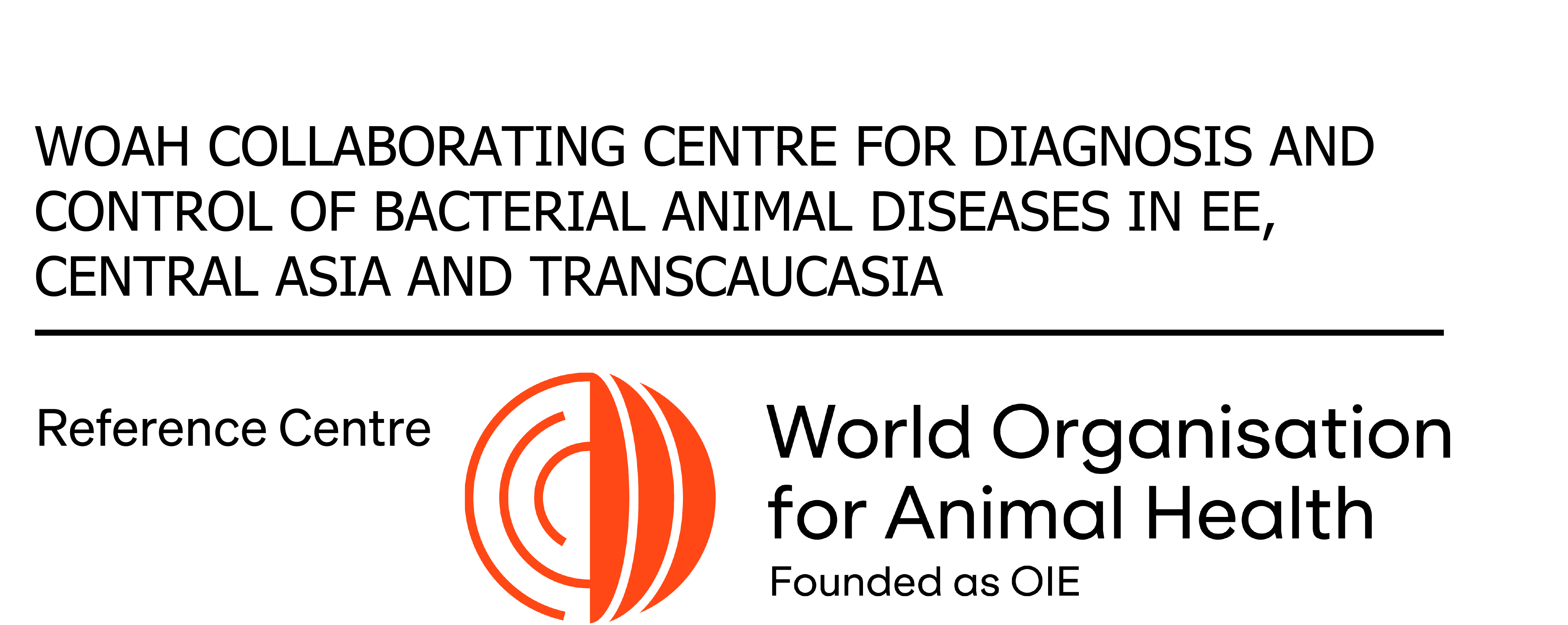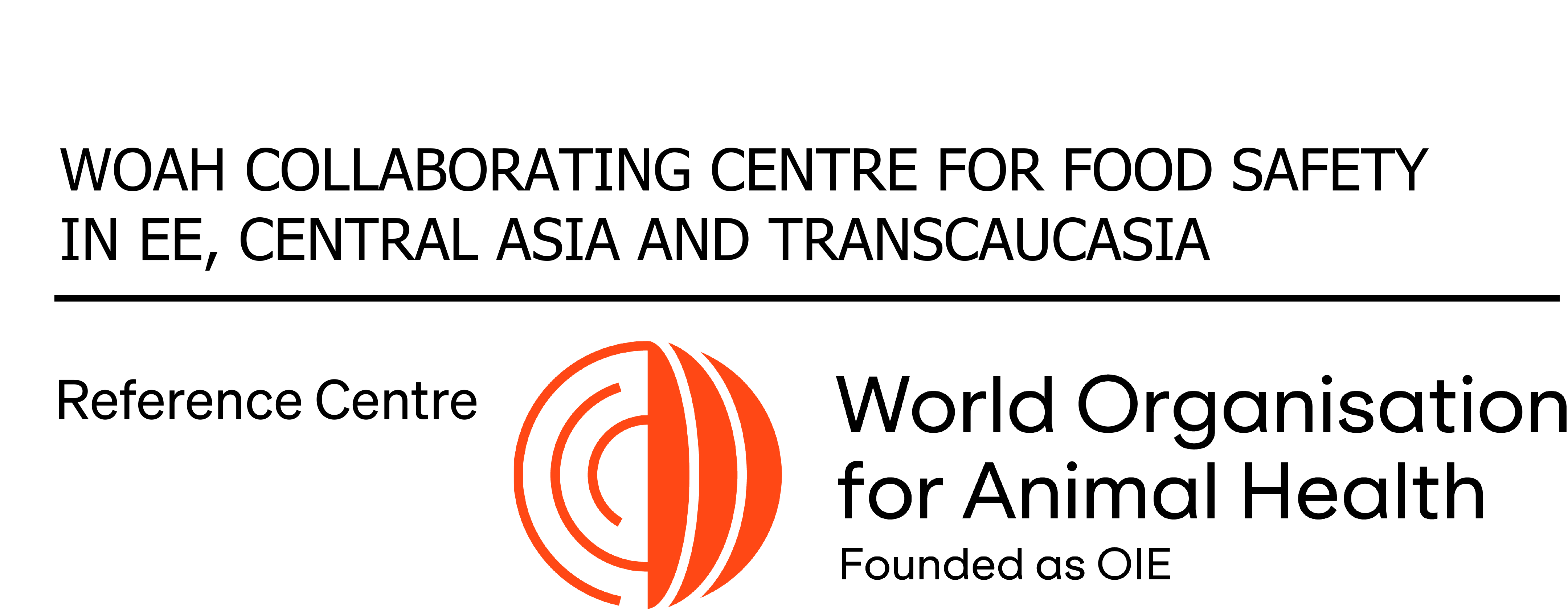THE SECOND ALL-RUSSIAN SCIENTIFIC CONFERENCE OF FSBI “VGNKI” WAS HELD IN ST. PETERSBURG
From June 29 to 30 in St. Petersburg, within the framework of the II Scientific Forum "Genetic Resources of Russia", a conference of the Russian State Center for Animal Feed and Drug Standardization and Quality (FSBI "VGNKI") "Biological Resources and Digitalization" was held.
The conference was held within the framework of the grant “Formation of a network bioresource collection of reference strains of microorganisms for state needs on the basis of the Federal State Budgetary Institution “VGNKI” and the BRC VKPM NRC KI GosNIIgenetika. Creation of new generation vaccines against animal diseases based on selected industrial strains of microorganisms. Agreement No. 075-15-2021-1053 dated September 29, 2021.
The reports presented at the scientific conference were devoted to the development of diagnostic tools and prevention of infectious animal diseases, practical aspects of maintaining, replenishing and digitalizing bioresource collections.
The conference was attended by 6 professors, including 3 academicians and 1 corresponding member of the Russian Academy of Sciences, representatives of the scientific community and Russian universities. The conference was moderated by Alexander Panin, Advisor to the Director of the VGNKI, Academician of the Russian Academy of Sciences.
Director of FGBNU VNITIBP Corresponding Member of the Russian Academy of Sciences, Professor Alexei Zaberezhny opened the conference with a report on modern approaches to the development of a vaccine against African swine fever (ASF). The speaker spoke about the history, epizootology, forms of the course of the disease, transitions from acute to chronic ASF, methods of virus transmission and methods for laboratory diagnosis of ASF, and also presented an overview of the results of testing candidate vaccines against ASF.
The speech of the Deputy Head of the Federal Center for the Conservation of Library Collections (FTSKBF) Tatyana Velikova was devoted to determining the effectiveness of two fungicidal preparations used for the disinfection of library and archival documents.
The report of Ekaterina Trepova, a leading researcher at the FTSKBF, provided information on the development of an express method for assessing the contamination of cultural heritage objects by the level of adenosine triphosphate (ATP), an organic compound that provides energy for many processes in living cells. In the course of the work, a protocol for the release of ATP from micromycete cells was selected, the time of extradition was determined, a method for recalculating the results obtained was demonstrated, and the experience of using this method in quality control of disinfection treatment was presented.
Elena Popikhina, Leading Specialist in Document Preservation of the FCKBF, reviewed the work on the ecological diversity of the airspace of Russian libraries and the documents stored in them. An analysis of the diversity indices made it possible to assess the composition of the microbiota in various climatic zones and to identify the micromycete species characteristic of them.
The report of the Deputy Head of the Kurchatov Complex for Genetic Research (KKGI) for scientific work Timirbaev Konstantin presented the criteria and principles for the formation of a national catalog of especially valuable microorganisms, as well as the formation of collection funds by bioresource centers. Separately, the speaker noted the importance of the certification and quality control system in the formation of a network of bioresource centers, and also outlined the main directions for their development, including the improvement of the regulatory framework.
Senior Researcher of the Bioresource Center "All-Russian Collection of Industrial Microorganisms" of the National Research Center "Kurchatov Institute" Konstantin Voyushin during the conference spoke about the formation of a network collection of standardized reference strains on the basis of the Federal State Budgetary Institution "VGNKI" and the BRC VKPM NRC KI GosNIIgenetika. “The result of the creation of the collection will be to meet the needs of a wide range of users in standardized samples of reference strains used in control methods for research on medicines and personal care products, food products, quality control of nutrient media and environmental pollution,” explained Konstantin Voyushin.
Associate Professor of the Department of Animal Hygiene and Poultry named after A.K. Danilova n. Associate Professor of the Department of Animal Hygiene and Poultry Production named after A. K. Danilova FGBOU IN MGAVMiB - MBA named after K. I. Skryabina. Ilya Nikonov devoted his report to the implementation of the mega-grant on the basis of VGNKI. The speaker presented the developments and prospects for the use of a consortium of strains of probiotic microorganisms for the prevention of zooanthroponotic infections in animals. “The developed probiotic was tested in vitro on antibiotic-resistant Escherichia coli test cultures, showing high antagonistic activity against opportunistic bacteria,” said Ilya Nikonov.
In addition, the probiotic was tested in vivo on broiler chickens and showed good zootechnical results. The developed probiotic consortium can be effectively implemented in industrial poultry farms in Russia.
Anton Motorygin, head of the scientific and technological laboratory of the VGNKI, made a presentation on scientific approaches to the development of a universal vaccine against animal colibacillosis. “The choice of E. coli strains when creating new generation vaccines should be based on the serogroup composition of circulating strains and the full range of virulence factors, as well as data from a genome-wide analysis of these factors,” explained Anton Motorygin.
Ekaterina Krylova, Leading Researcher of the Department of Molecular Biology of the VGNKI, in her speech spoke about the experience of using the whole genome sequencing method to characterize reference bacterial strains from the institution's collection. The speaker paid special attention to bioinformatics data analysis and criteria for the quality of genome assembly.
Irina Soltynskaya, Head of the Department of Molecular Biology of the VGNKI, presented a report on working with databases and online resources used to search for virulence factors and pathogenicity islands of bacteria as part of molecular genetic studies of isolates.
Dmitry Blumenkrants, Leading Specialist of the Department of Molecular Biology of the VGNKI, made a presentation on promising methods for studying the composition of microbial biofilms for the development of drugs aimed at developing animal immunity. “The developed new methodological approach will make it possible to scientifically substantiate the choice of the most effective probiotic bacterial strains for correcting the immune status of animals,” said Dmitry Blumenkrants.
At the end of the conference, the participants discussed the tasks and activities for the development of standards for the conservation of bioresource collections, as well as the relevance and importance of projects related to the study and use of microorganisms.
In addition, at the plenary session of the II Scientific Forum "Genetic Resources of Russia" on June 28, 2023 at St. Petersburg State University, Olga Ivanova, Head of the Department of Biotechnology of the Federal State Budgetary Institution "VGNKI", made a presentation. The speaker spoke about the work in terms of improving and developing the network bioresource collection of reference strains of microorganisms of the Federal State Budgetary Institution "VGNKI".
“The main task of the work is the creation of a national bioresource center for standardization, storage and availability of microbial bioresources created in various research organizations with various forms of deposition. Reference strains in the VGNKI collection can be used to control the quality of nutrient media and medicines for veterinary use, methods for the study of agricultural products, as well as analogues of strains from international collections used to implement biosafety methods,” explained Olga Ivanova.





